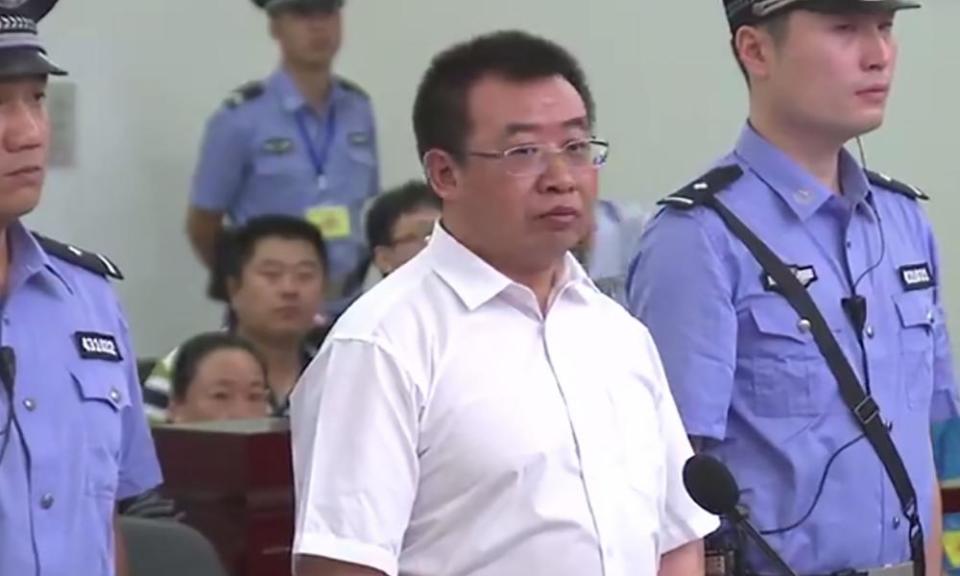'Travesty' trial ends in China with lawyer Jiang Tianyong jailed

China has sentenced a prominent civil rights lawyer to two years in prison in a trial that was denounced as political theatre by critics.
Jiang Tianyong, whose past clients include a wide range of activists such as the exiled dissident lawyer Chen Guangcheng, was sentenced on charges of “inciting subversion of state power” in the central city of Changsha on Tuesday morning, after languishing in detention for the past year.
Jiang said he would not appeal against the conviction, according to the court’s official social media account. He was also deprived of political rights for three years.
His case was part of a wider campaign focused on jailing and intimidating lawyers who took on politically sensitive cases that challenged the government. President Xi Jinping has overseen a sweeping crackdown on dissent since coming to power five years ago, and activists and diplomats have described it as the worst in three decades.
“I don’t accept this sentence: the entire trial completely ignored China’s own laws and due process,” said Jin Bianling, Jiang’s wife, who has received asylum in the US.
The government rejected lawyers she hired to defend her husband, and the state-appointed attorney refused to speak to her, Jin said.
“I spoke to Jiang Tianyong briefly today. He told me he misses me and our daughter. He worries about us a lot.”
During his trial in August, Jiang said he attended training sessions abroad where he was encouraged to reject China’s political system and ruling Communist party, saying he was “ashamed”, according to state media reports.
The court also said he was guilty of applying for funds from overseas “anti-China” organisations, although it did not provide details. Jiang’s interviews with “foreign media” were also used as evidence of his efforts to “discredit organs of state power”.
Human rights advocates said any admission of guilt was likely to have been coerced and rejected the charges against Jiang.
“Today’s guilty verdict is the final act in this carefully managed play. Chinese authorities subjected Jiang to a litany of due process violations, including being forcibly disappeared and denied access to a lawyer and he was likely tortured to confess,” said Frances Eve, a researcher at the NGO Network of Chinese Human Rights Defenders.
The court also cited Jiang’s role in helping publish information on the plight of another human rights lawyer, Xie Yang, who detailed his account of torture in detention.
Jiang disappeared while boarding a train in November 2016 and it was several weeks before the authorities confirmed he was in custody.
“This case has been an absolute travesty from the beginning, sustained by nothing other than pure political persecution, not facts or broken laws,” said Sophie Richardson, China director at Human Rights Watch.

 Yahoo News
Yahoo News 